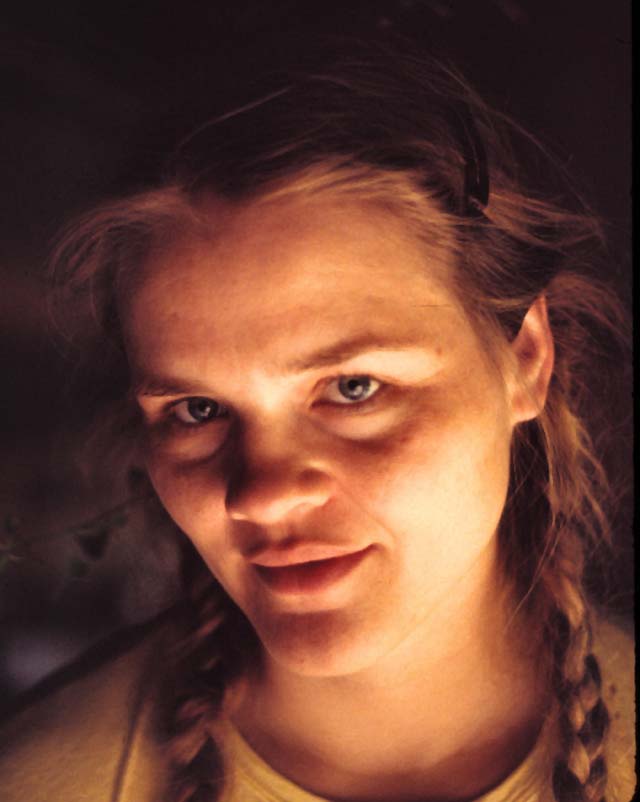They're about the size of an adult finger.
The mesquite trees in our parking lot are loaded with these blooms.
These trees provide shade for our cars during the school day as the weather begins to heat up. They're native to southern Nevada, so they tolerate the high temperatures and need very little water.
You see how small the leaves are, and they're very resinous too--all important features of a desert dweller. These flowers will turn into seed pods, and--I learned from my nature field trips--that coyotes are a main consumer of these seeds. The early people who lived here ground up the seeds on a metate to make a cake or a porridge. The seeds are full of protein.
Well, I wasn't the only one enjoying the beautiful evening air filled with the scent of the honey mesquite. Ummm...I guess that's why they call it the "honey" mesquite, huh?
Every one of these trees lining the median in our parking lot was vibrating with hundreds of bees, gobbling up the nectar from those tiny, tiny flowers. I'm going to have to look for some mesquite honey in the grocery store. I'm sure that the beautiful scent has to translate into some really tasty toast topping. The bees were working enthusiastically and I'm sure their honey will be terrific.
And, yes, I spent about twenty minutes photographing bees and flowers. It was such a great night to be outside. I think we need to plant one of these in our yard so we can enjoy the beautiful aroma and be a host to bees every spring.








No comments:
Post a Comment